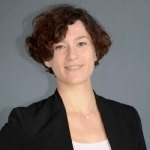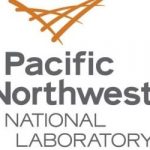Singapore’s quantum aims boosted by three national platforms

(Optics.org) Photonics World explains the purpose and significance of Singapore’s three national technology platforms, i.e., 1) the Institute of High Performance Computing, 2) the National Supercomputing Centre Singapore and 3) the Centre for Quantum Technologies; collaborating in the National Quantum Computing Hub. IQT-News summarizes.
Singapore’s Quantum Engineering Programme (QEP) has launched three national platforms to grow the country’s capabilities in quantum computing, quantum-safe communication and the manufacturing of quantum devices.
Deputy Prime Minister, Coordinating Minister for Economic Policies, and Chairman of the National Research Foundation, Heng Swee Keat, spoke on the initiatives in his opening address at the Asia Tech x Singapore, “the region’s flagship tech event”.
The three national quantum platforms, which are hosted across the National University of Singapore (NUS), Nanyang Technological University, Singapore (NTU Singapore), the Agency for Science, Technology and Research, (A*STAR), and the National Supercomputing Centre (NSCC) Singapore, will coordinate activities across research organisations and build public-private collaborations to put Singapore at the cutting edge in quantum technologies.
The platforms are:
National Quantum Computing Hub – which will develop quantum computing capabilities and explore applications through industry collaborations;
National Quantum Fabless Foundry – which will support microfabrication techniques for quantum devices and enabling technologies;
National Quantum-Safe Network – which will conduct nationwide trials of quantum-safe communication technologies that aim to enhance network security for critical infrastructure.
Singapore has made steady investments in research in quantum technologies over two decades. Launched in 2018, the QEP is a national programme that applies quantum technologies for solving user-defined problems.
NRF Chief Executive Officer Professor Low Teck Seng commented, “The launch of the three national platforms signals the intent and ambition of Singapore to build upon our past investments in quantum technologies, and take it further through close industry development with our partner agencies. The platforms will leverage strengths from each participating institution to develop capabilities across quantum computing, communications, and devices.”
Dr Alexander Ling, Director of QEP, said, “Quantum technologies are attracting global interest thanks to their potential impacts across industries. The creation of three national quantum platforms in Singapore allows us to act as a bigger player in the key areas of computing, communication and manufacturing. QEP supports these initiatives and other efforts to reap the benefits of Singapore’s heritage in quantum research.”
Singapore’s National Quantum Computing Hub will pool expertise and resources from the Centre for Quantum Technologies’ teams at NUS and NTU Singapore, A*STAR’s Institute of High Performance Computing and the National Supercomputing Centre Singapore in building a quantum computing ecosystem in Singapore.
Researchers at CQT and IHPC will develop quantum computing hardware and middleware. They will also explore applications with industry collaborators in fields such as finance, supply chain, and chemistry. Meanwhile, NSCC will host a quantum computing facility and provide the supercomputing power needed to develop and train the algorithms that could eventually be used on quantum computers.
The National Quantum Fabless Foundry, hosted at A*STAR’s Institute of Materials Research and Engineering, will support micro and nanofabrication of quantum devices in QEP’s three pillars of quantum computation, communication and sensing. It will also develop enabling devices related to Singapore’s strategic needs in the quantum technology ecosystem.
https://optics.org/news/13/6/5
Sandra K. Helsel, Ph.D. has been researching and reporting on frontier technologies since 1990. She has her Ph.D. from the University of Arizona.























